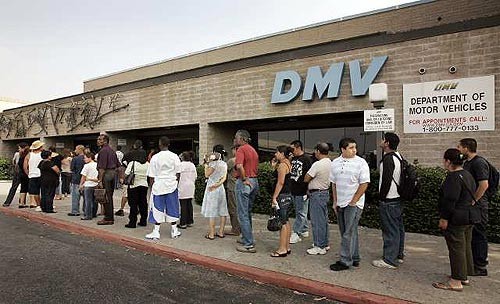Introduction
Many people ask, “What does DMV stand for states“ The answer varies because while DMV commonly means Department of Motor Vehicles, not every state uses this term. Each U.S. state has a motor vehicle agency responsible for driver licensing, vehicle registration, and road safety, but their names and services differ.
In this guide, we will explore what does DMV stand for states, how its functions differ, and why it is an essential government agency for all drivers.
What Does DMV Stand for States?
DMV stands for Department of Motor Vehicles, but some states use alternative names. The primary responsibilities remain the same across states, but the names and processes can differ.
Alternative Names for DMV in Different States
| State | Agency Name |
| California | Department of Motor Vehicles (DMV) |
| Texas | Department of Public Safety (DPS) |
| Florida | Department of Highway Safety and Motor Vehicles (DHSMV) |
| Illinois | Secretary of State’s Office (SOS) |
| Georgia | Department of Driver Services (DDS) |
| Michigan | Secretary of State (SOS) |
| Pennsylvania | Pennsylvania Department of Transportation (PennDOT) |
| Wisconsin | Division of Motor Vehicles (DMV) under DOT |
| Washington | Department of Licensing (DOL) |
| South Carolina | Department of Motor Vehicles (DMV) |
Despite the different names, the primary responsibilities remain the same across states.
Core Responsibilities of DMV
The DMV (Department of Motor Vehicles) in each state plays a crucial role in ensuring road safety, regulating drivers, and managing vehicle registrations. Some of the key responsibilities include:
1. Driver Licensing and Testing
- Issuing learner’s permits, driver’s licenses, and commercial driver’s licenses (CDLs)
- Conducting written and road tests
- Renewing or replacing lost/stolen licenses
- Managing driving records and points systems
2. Vehicle Registration and Titling
- Registering new and used vehicles
- Issuing license plates and renewal stickers
- Managing vehicle title transfers
- Collecting road taxes and fees
3. Road Safety and Law Enforcement
- Implementing state traffic laws
- Ensuring vehicle inspections and emissions testing compliance
- Managing DUI/DWI cases and suspensions
4. Special Services
- Providing handicap parking permits
- Offering online services for license renewals and vehicle registrations
- Managing state identification cards
How DMV Services Differ by State
While all states perform similar functions, DMV policies, fees, and processes vary based on state laws and population needs. Let’s take a closer look at how DMV services differ by state.
1. License Renewal Policies
- In California, driver’s licenses must be renewed every 5 years.
- In Florida, drivers under 80 renew every 8 years, while those over 80 renew every 6 years.
- In Texas, standard licenses are valid for 6 years.
2. Vehicle Registration Fees
- California has one of the highest vehicle registration fees, starting at around $60 plus additional charges.
- Florida charges a base fee of about $225 for first-time registrations.
- New York has variable fees based on the vehicle’s weight and type.
3. Emissions Testing Requirements
- California and New York require regular emissions testing.
- Florida and Michigan have no emissions testing requirements.
4. Online vs. In-Person DMV Services
Many states now allow online transactions to reduce in-person DMV visits. States like Texas, California, and Florida offer online services for:
- License renewals
- Vehicle registration renewals
- Address changes
Common DMV Issues and How to Handle Them
Visiting the DMV can be stressful due to long wait times and paperwork. Here are some common problems and solutions:
1. Long Wait Times
- Solution: Use online services where possible or book an appointment in advance.
2. Lost or Stolen Driver’s License
- Solution: Report it to the DMV and apply for a duplicate online or in-person.
3. Failed Driving Test
- Solution: Review state-specific driving manuals and practice before retaking the test.
4. Title Transfer Issues
- Solution: Ensure all required documents are available, including the bill of sale and proof of ownership.
Conclusion
Understanding what does DMV stand for states and how it operates in different states is crucial for drivers and vehicle owners. Whether you are registering a car, renewing a license, or handling a title transfer, knowing your state’s specific requirements can save time and hassle.
If you are unsure about your state’s DMV services, visit the official government website for the most up-to-date information. Stay informed, drive safely, and make your DMV visits as smooth as possible!

